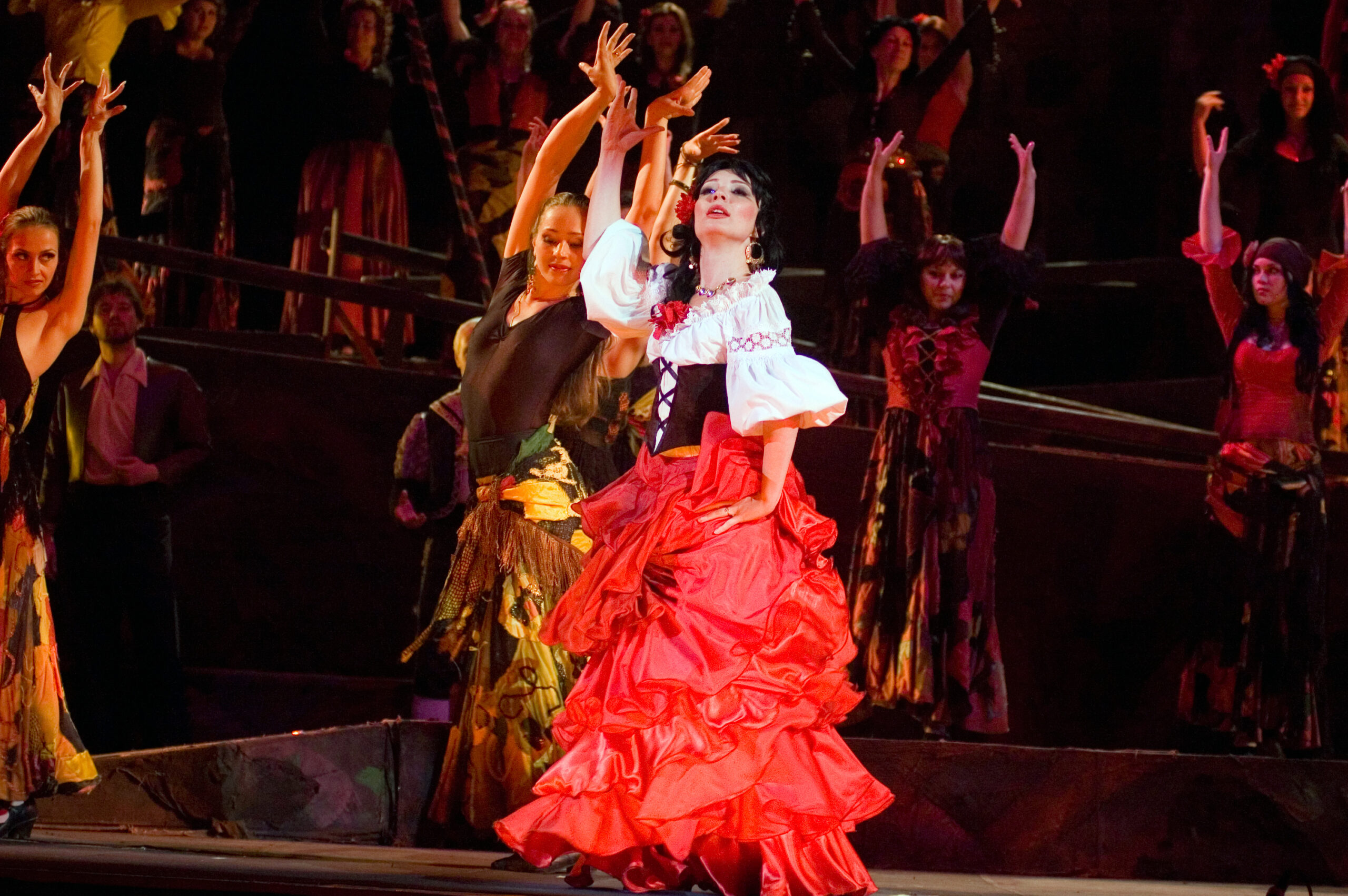At a time when popularity and relevance can be measured in weeks (anyone remember the Fidget Spinner?) anything that remains popular 140 years after its debut is worthy of celebration.
Georges Bizet’s Carmen premiered in 1875 – and was absolutely scandalous at the time. It’s been in vogue ever since. After starting out as a novella by Prosper Mérimée, it’s been an opera; a ballet; a flamenco dance movie; a Broadway musical (Carmen Jones) with an all-black cast, including Harry Belafonte and Dorothy Dandridge; and more. “Carmen may have more hit tunes than any opera ever composed,” according to a 2010 NPR story on Bizet’s Pop Culture Carmen.
“People who say they’ve never listened to a note of opera … have probably heard something from Carmen, even if it was only in an elevator.” Or in Sesame Street; the 2007 movie Wild Hogs; the 1996 film Trainspotting; the “wake-up” scene in the Disney/Pixar film Up; a 2013 episode of Glee; or possibly a Dorito’s commercial.
The music is timeless. But what else makes it special?
Well, it’s kind of smutty. The NPR story goes on to say: “It showcases any number of elements that don’t exactly mesh with opera’s typical, highbrow image — proving that opera goers are attracted by the same sort of guilty pleasures that draw people to sensational TV shows, or lurid films” – films such as Basic Instinct. In fact, the story compares the Sharon Stone character in that film to Carmen.
Carmen is complex and fun to play. It’s not surprising that a character so fierce would attract the interest of Beyoncé, who made her acting debut in a 2001 musical film adaptation of Carmen, the MTV-produced Carmen: A Hip Hopera.
Something else unplanned, but sensational, happened that helped secure the eternal success of Carmen. Its young composer, Bizet, died at 36 – just three months after Carmen opened. Suddenly, everyone wanted to see the opera whose composer had tragically died without knowing he’d written an opera that would be a global success.


